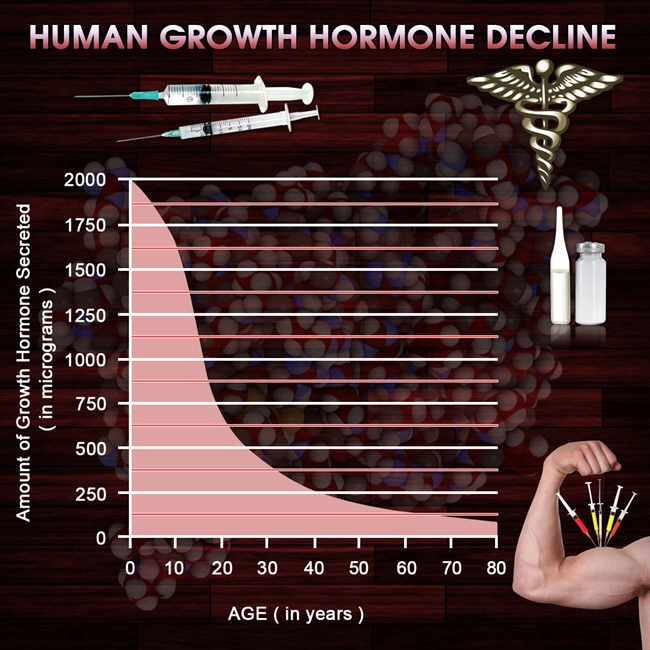
Introduction to Semaglutide Therapy
Semaglutide, a glucagon-like peptide-1 (GLP-1) receptor agonist, has emerged as a cornerstone in the management of type 2 diabetes. Its efficacy in improving glycemic control and promoting weight loss has positioned it as a preferred option for many patients. However, the journey towards optimal diabetes management is not one-size-fits-all, and recent advancements in personalized medicine are reshaping how semaglutide therapy is administered.
The Importance of Patient Data in Personalized Medicine
The advent of big data and advanced analytics has transformed the landscape of healthcare, particularly in the realm of personalized medicine. For semaglutide therapy, patient data plays a pivotal role in tailoring treatment plans to individual needs. This data encompasses a wide array of information, including genetic profiles, lifestyle factors, and real-time health metrics, which collectively inform a more nuanced approach to therapy.
Genetic Profiling and Semaglutide Response
One of the most exciting frontiers in personalizing semaglutide therapy is the use of genetic profiling. Research has begun to uncover genetic markers that may predict a patient's response to semaglutide. For instance, variations in genes related to GLP-1 receptor function can influence how effectively a patient will respond to the medication. By integrating genetic data into treatment plans, healthcare providers can better predict outcomes and adjust dosages accordingly, enhancing both efficacy and safety.
Lifestyle Factors and Therapeutic Adjustments
Lifestyle factors, such as diet, exercise, and sleep patterns, are integral to the success of semaglutide therapy. Patient data collected through wearable devices and health apps provides a continuous stream of information that can be used to fine-tune treatment. For example, if a patient's activity levels increase, their semaglutide dosage might need adjustment to prevent hypoglycemia. Conversely, if a patient's diet is high in carbohydrates, a higher dose might be necessary to maintain glycemic control.
Real-Time Monitoring and Adaptive Therapy
The integration of real-time monitoring tools has revolutionized the way semaglutide therapy is managed. Continuous glucose monitors (CGMs) provide immediate feedback on blood sugar levels, allowing for dynamic adjustments to semaglutide dosing. This real-time data enables healthcare providers to adapt therapy on the fly, ensuring that patients remain within their target glucose ranges. Such adaptive therapy not only improves patient outcomes but also enhances patient engagement and satisfaction with their treatment plan.
Challenges and Considerations in Data-Driven Therapy
While the potential of patient data in personalizing semaglutide therapy is immense, several challenges remain. Data privacy and security are paramount concerns, as sensitive health information must be protected from breaches. Additionally, the sheer volume of data generated requires robust analytical tools to derive meaningful insights. Healthcare providers must also be trained to interpret and act on this data effectively, ensuring that the benefits of personalized medicine are fully realized.
The Future of Semaglutide Therapy
Looking ahead, the future of semaglutide therapy lies in the continued integration of patient data into clinical practice. As technology advances, we can anticipate even more sophisticated tools for data collection and analysis, further refining the personalization of treatment. The ultimate goal is to create a seamless, data-driven approach to diabetes management that maximizes patient outcomes while minimizing the burden of the disease.
Conclusion
The personalization of semaglutide therapy through the use of patient data represents a significant leap forward in the management of type 2 diabetes. By leveraging genetic profiles, lifestyle data, and real-time monitoring, healthcare providers can tailor treatment plans to meet the unique needs of each patient. As we continue to navigate the challenges and opportunities presented by this data-driven approach, the promise of improved health outcomes for American males with type 2 diabetes becomes increasingly attainable.
Contact Us Today For A Free Consultation
Dear Patient,
Once you have completing the above contact form, for security purposes and confirmation, please confirm your information by calling us.
Please call now: 1-800-380-5339.
Welcoming You To Our Clinic, Professor Tom Henderson.

- The Semaglutide Revelation: Shaping the Future of Diabetes and Weight Management [Last Updated On: February 25th, 2025] [Originally Added On: February 25th, 2025]
- The Evolution of Semaglutide: A Journey from Laboratory Observations to Life-Changing Medicine [Last Updated On: February 26th, 2025] [Originally Added On: February 26th, 2025]
- Deciphering the Dynamics of Semaglutide: An Unraveled Exploration into GLP-1 Science [Last Updated On: February 27th, 2025] [Originally Added On: February 27th, 2025]
- Grasping the Metabolic Majesty: Semaglutide's Profound Influence Beyond Blood Sugar Levels [Last Updated On: February 28th, 2025] [Originally Added On: February 28th, 2025]
- Emerging Innovations: Unveiling Semaglutide as a Superior GLP-1 Agonist in 2024 [Last Updated On: February 28th, 2025] [Originally Added On: February 28th, 2025]
- Revolutionizing Diabetes Management: The Pioneering Role of Semaglutide [Last Updated On: March 1st, 2025] [Originally Added On: March 1st, 2025]
- Reimagining Diabetes Management: Semaglutide's Revolutionary Impact on Patient Lives [Last Updated On: March 2nd, 2025] [Originally Added On: March 2nd, 2025]
- Exploring Semaglutide: Its Role in Diabetes Management and Weight Loss Efficacy [Last Updated On: March 3rd, 2025] [Originally Added On: March 3rd, 2025]
- Semaglutide: Transforming Metabolic Health in American Males [Last Updated On: March 4th, 2025] [Originally Added On: March 4th, 2025]
- Semaglutide's Role in Preserving Beta-Cell Function for American Males with Type 2 Diabetes [Last Updated On: March 4th, 2025] [Originally Added On: March 4th, 2025]
- Semaglutide: Advancing Cardiovascular and Diabetes Management in American Males [Last Updated On: March 5th, 2025] [Originally Added On: March 5th, 2025]
- Semaglutide: Transforming Treatment for Diabetes and Obesity in American Males [Last Updated On: March 6th, 2025] [Originally Added On: March 6th, 2025]
- Optimizing Semaglutide Dosage for Diabetes and Weight Management: A Comprehensive Guide [Last Updated On: March 7th, 2025] [Originally Added On: March 7th, 2025]
- Semaglutide: Benefits, Risks, and Guidelines for American Men's Diabetes and Weight Management [Last Updated On: March 8th, 2025] [Originally Added On: March 8th, 2025]
- Semaglutide: Groundbreaking Tool in Obesity Management for American Men [Last Updated On: March 9th, 2025] [Originally Added On: March 9th, 2025]
- The Economic Landscape of Semaglutide: Analyzing Cost, Insurance Coverage, and Overall Value for American Males [Last Updated On: March 12th, 2025] [Originally Added On: March 12th, 2025]
- Real-World Applications of Semaglutide: Insights from Clinical Practice for American Males [Last Updated On: March 13th, 2025] [Originally Added On: March 13th, 2025]
- Unlocking the Potential of Semaglutide in Managing Metabolic Syndrome: A Comprehensive Guide for American Males [Last Updated On: March 15th, 2025] [Originally Added On: March 15th, 2025]
- Semaglutide: A Comprehensive Guide for American Males on Diabetes and Obesity Management [Last Updated On: March 16th, 2025] [Originally Added On: March 16th, 2025]
- Unlocking the Full Potential of Semaglutide: Expert Strategies for American Males [Last Updated On: March 16th, 2025] [Originally Added On: March 16th, 2025]
- Semaglutide: A Comprehensive Guide for American Males Managing Diabetes and Obesity [Last Updated On: March 17th, 2025] [Originally Added On: March 17th, 2025]
- Semaglutide: Transforming Lives of American Men Through Weight Loss Success Stories [Last Updated On: March 18th, 2025] [Originally Added On: March 18th, 2025]
- Semaglutide and Beyond: Innovations in GLP-1 Therapy for American Males [Last Updated On: March 18th, 2025] [Originally Added On: March 18th, 2025]
- Semaglutide: Lowering HbA1c and Aiding Weight Loss in Type 2 Diabetes Management [Last Updated On: March 18th, 2025] [Originally Added On: March 18th, 2025]
- Semaglutide: A New Hope for Appetite Control and Weight Management in American Men [Last Updated On: March 18th, 2025] [Originally Added On: March 18th, 2025]
- Semaglutide: A Comprehensive Guide for American Males on Diabetes and Obesity Management [Last Updated On: March 19th, 2025] [Originally Added On: March 19th, 2025]
- Semaglutide's Anti-Inflammatory Benefits: A New Hope for American Males [Last Updated On: March 20th, 2025] [Originally Added On: March 20th, 2025]
- Semaglutide: A Dual Benefit for Diabetes and Weight Management in American Men [Last Updated On: March 20th, 2025] [Originally Added On: March 20th, 2025]
- Semaglutide's Impact on Satiety Hormones for Weight Management in American Males [Last Updated On: March 20th, 2025] [Originally Added On: March 20th, 2025]
- Semaglutide: Revolutionizing Weight and Metabolic Health in American Men [Last Updated On: March 21st, 2025] [Originally Added On: March 21st, 2025]
- Personalizing Semaglutide Therapy for American Males: Dosage, Monitoring, and Lifestyle Integration [Last Updated On: March 21st, 2025] [Originally Added On: March 21st, 2025]
- Semaglutide: A Promising Treatment for NAFLD in American Men [Last Updated On: March 22nd, 2025] [Originally Added On: March 22nd, 2025]
- Semaglutide and Insulin: Complementary vs. Competitive Roles in Diabetes Management for American Males [Last Updated On: March 22nd, 2025] [Originally Added On: March 22nd, 2025]
- Semaglutide: Enhancing Lipid Profiles and Cardiovascular Health in American Men [Last Updated On: March 22nd, 2025] [Originally Added On: March 22nd, 2025]
- Semaglutide's Impact on Kidney Health in American Males with Type 2 Diabetes [Last Updated On: March 22nd, 2025] [Originally Added On: March 22nd, 2025]
- Semaglutide Side Effects: Management Strategies for American Males [Last Updated On: March 22nd, 2025] [Originally Added On: March 22nd, 2025]
- Semaglutide: A Comprehensive Solution for Diabetes Management in American Men [Last Updated On: March 22nd, 2025] [Originally Added On: March 22nd, 2025]
- Semaglutide: Revolutionizing Diabetes and Obesity Management for American Males [Last Updated On: March 23rd, 2025] [Originally Added On: March 23rd, 2025]
- Semaglutide Delivery Innovations: From Oral to Implantable Solutions for American Males [Last Updated On: March 23rd, 2025] [Originally Added On: March 23rd, 2025]
- Semaglutide: A Breakthrough in Weight Loss for American Men [Last Updated On: March 23rd, 2025] [Originally Added On: March 23rd, 2025]
- Semaglutide Enhances Sleep Quality in Diabetic Men: Mechanisms and Clinical Evidence [Last Updated On: March 24th, 2025] [Originally Added On: March 24th, 2025]
- Semaglutide: A Comprehensive Solution for Diabetes, Weight Loss, and Cardiovascular Health in American Males [Last Updated On: March 24th, 2025] [Originally Added On: March 24th, 2025]
- Semaglutide: Enhancing Life Quality for American Men with Diabetes and Obesity [Last Updated On: March 24th, 2025] [Originally Added On: March 24th, 2025]
- Semaglutide: A Breakthrough in Obesity Management for American Males [Last Updated On: March 25th, 2025] [Originally Added On: March 25th, 2025]
- Genetics Influence Semaglutide Response in American Males: Personalized Treatment Insights [Last Updated On: March 25th, 2025] [Originally Added On: March 25th, 2025]
- Optimizing Semaglutide Therapy: A Dietary Guide for American Men [Last Updated On: March 25th, 2025] [Originally Added On: March 25th, 2025]
- Semaglutide: Revolutionizing Health Management for American Males [Last Updated On: March 25th, 2025] [Originally Added On: March 25th, 2025]
- Semaglutide Therapy for American Males: Steps from Consultation to Long-Term Management [Last Updated On: March 25th, 2025] [Originally Added On: March 25th, 2025]
- Semaglutide's Role in Managing Diabetes and Obesity in American Males Across Specialties [Last Updated On: March 25th, 2025] [Originally Added On: March 25th, 2025]
- Semaglutide: Opportunities and Challenges in Adolescent Obesity Management for American Males [Last Updated On: March 25th, 2025] [Originally Added On: March 25th, 2025]
- Semaglutide: Discussing Diabetes and Weight Loss Treatment with Your Doctor [Last Updated On: March 25th, 2025] [Originally Added On: March 25th, 2025]
- Semaglutide's Real-World Efficacy and Safety in American Males: A Comprehensive Analysis [Last Updated On: March 26th, 2025] [Originally Added On: March 26th, 2025]
- Semaglutide: Revolutionizing Male Health in Endocrinology and Beyond [Last Updated On: March 26th, 2025] [Originally Added On: March 26th, 2025]
- Telemedicine Integration of Semaglutide Enhances Diabetes Management for American Males [Last Updated On: March 26th, 2025] [Originally Added On: March 26th, 2025]
- Semaglutide: A Dual-Action Solution for Diabetes and Obesity in American Men [Last Updated On: March 26th, 2025] [Originally Added On: March 26th, 2025]
- Semaglutide's Impact on Inflammation: Benefits for American Males' Health [Last Updated On: March 26th, 2025] [Originally Added On: March 26th, 2025]
- Semaglutide: A New Hope for Aging American Males' Health Challenges [Last Updated On: March 26th, 2025] [Originally Added On: March 26th, 2025]
- Semaglutide: Enhancing Energy and Vitality in American Men [Last Updated On: March 26th, 2025] [Originally Added On: March 26th, 2025]
- Semaglutide and Exercise: Synergistic Health Benefits for American Males [Last Updated On: March 26th, 2025] [Originally Added On: March 26th, 2025]
- Semaglutide: Clinical Insights for American Males on Diabetes and Obesity Management [Last Updated On: March 27th, 2025] [Originally Added On: March 27th, 2025]
- Semaglutide's Anti-Inflammatory Potential: A New Frontier in Men's Health [Last Updated On: March 27th, 2025] [Originally Added On: March 27th, 2025]
- Semaglutide Adherence Strategies for American Men: Enhancing Diabetes and Weight Management [Last Updated On: March 27th, 2025] [Originally Added On: March 27th, 2025]
- Semaglutide: A Comprehensive Guide for American Males on GLP-1 Therapy [Last Updated On: March 27th, 2025] [Originally Added On: March 27th, 2025]
- Semaglutide: Reducing Cardiovascular Risks in American Males with Type 2 Diabetes [Last Updated On: March 28th, 2025] [Originally Added On: March 28th, 2025]
- Semaglutide's Impact on Mental Health in American Men: Diabetes, Obesity, and Beyond [Last Updated On: March 28th, 2025] [Originally Added On: March 28th, 2025]
- Semaglutide's Long-Term Safety for American Males: Diabetes and Obesity Management [Last Updated On: March 29th, 2025] [Originally Added On: March 29th, 2025]
- Semaglutide's Role in Managing Postprandial Glucose in American Males with Diabetes [Last Updated On: March 30th, 2025] [Originally Added On: March 30th, 2025]
- Maximizing Semaglutide Benefits: Dosage, Diet, Exercise, and Holistic Support for American Males [Last Updated On: March 30th, 2025] [Originally Added On: March 30th, 2025]
- Semaglutide: Revolutionizing Obesity and Diabetes Treatment in American Men [Last Updated On: March 30th, 2025] [Originally Added On: March 30th, 2025]
- Semaglutide: Transforming Lives of American Men Through Weight Loss and Health Improvement [Last Updated On: March 31st, 2025] [Originally Added On: March 31st, 2025]
- Semaglutide vs. Other Medications: Weight Loss Options for American Males [Last Updated On: March 31st, 2025] [Originally Added On: March 31st, 2025]
- Navigating Insurance for Semaglutide: A Guide for American Males [Last Updated On: April 1st, 2025] [Originally Added On: April 1st, 2025]
- Semaglutide's Economic Impact on Healthcare for American Men with Type 2 Diabetes [Last Updated On: April 2nd, 2025] [Originally Added On: April 2nd, 2025]
- Semaglutide's Role in Preventing Diabetes in American Males: Latest Research and Implications [Last Updated On: April 4th, 2025] [Originally Added On: April 4th, 2025]
- Semaglutide and Behavioral Therapy: A Holistic Approach to Male Obesity Management [Last Updated On: April 6th, 2025] [Originally Added On: April 6th, 2025]
- Semaglutide Pharmacokinetics in American Males: Absorption, Distribution, and Clinical Implications [Last Updated On: April 7th, 2025] [Originally Added On: April 7th, 2025]
- Semaglutide's Impact on Lipoprotein Profiles in American Males: A Clinical Overview [Last Updated On: April 7th, 2025] [Originally Added On: April 7th, 2025]
- Semaglutide: Reducing Visceral Fat in American Males for Better Metabolic Health [Last Updated On: April 9th, 2025] [Originally Added On: April 9th, 2025]
- Semaglutide: Enhancing Exercise Performance and Metabolic Efficiency in American Males [Last Updated On: April 9th, 2025] [Originally Added On: April 9th, 2025]
- Semaglutide: A Holistic Approach to Managing Diabetes and Obesity in American Men [Last Updated On: April 9th, 2025] [Originally Added On: April 9th, 2025]









